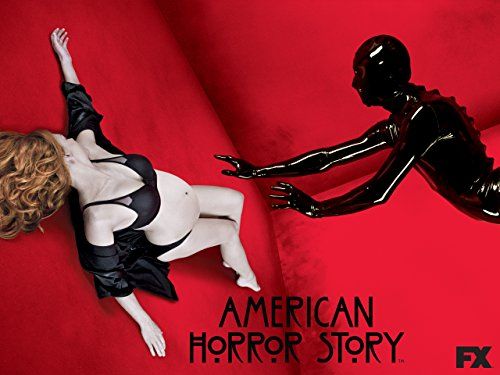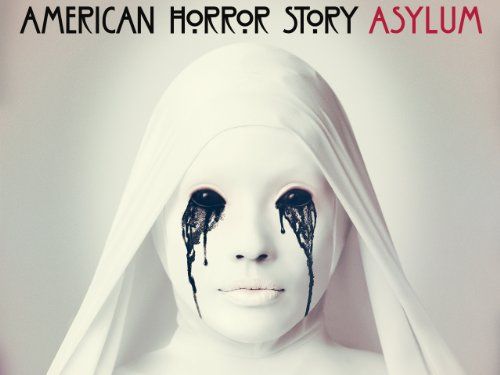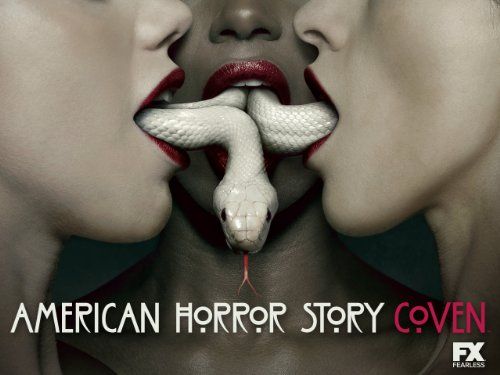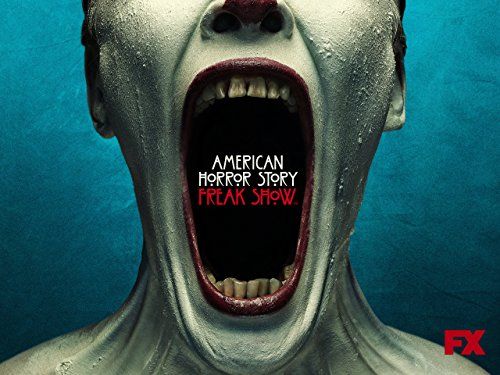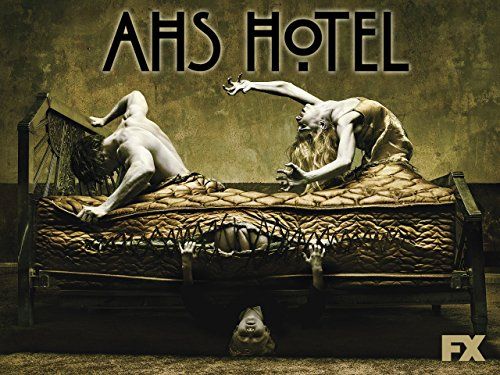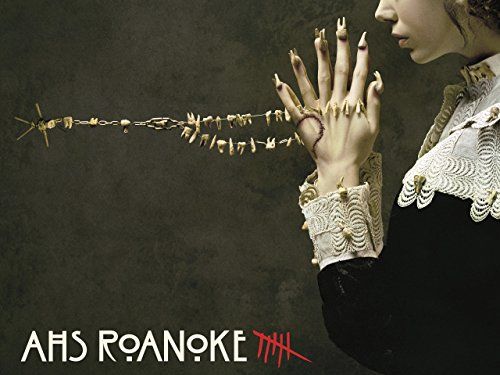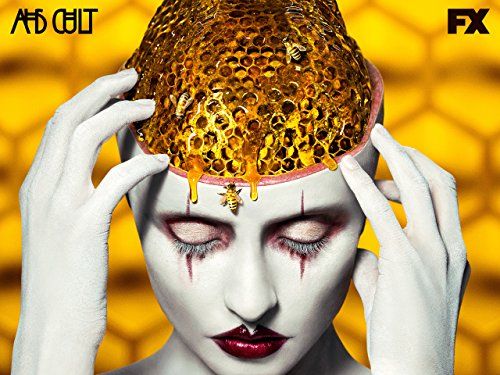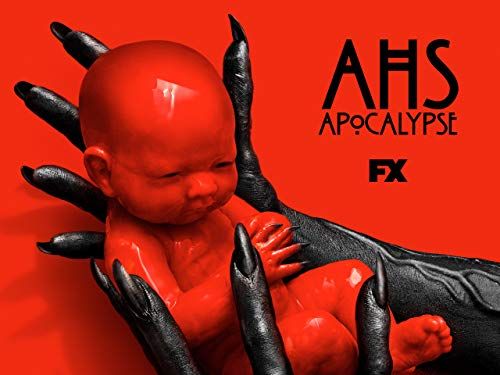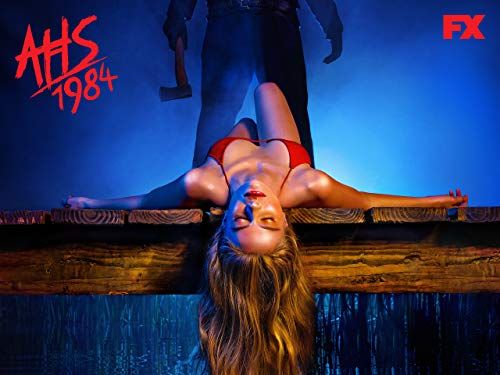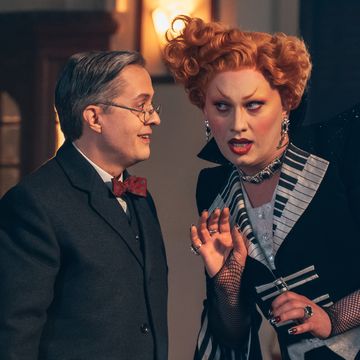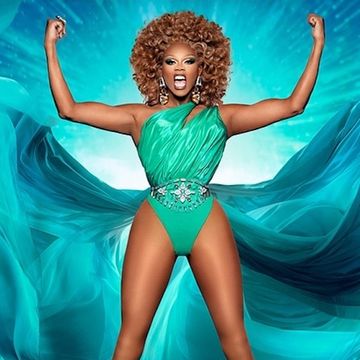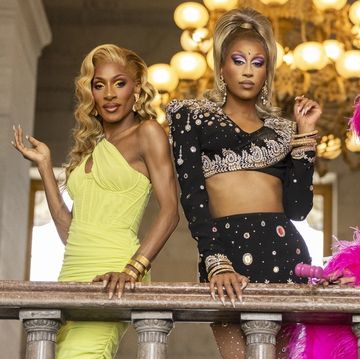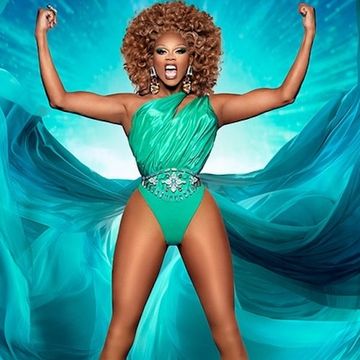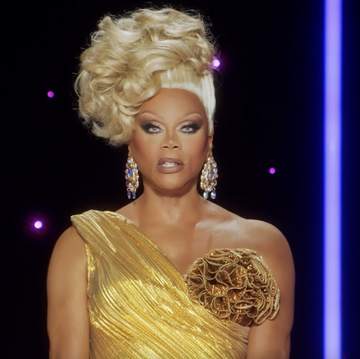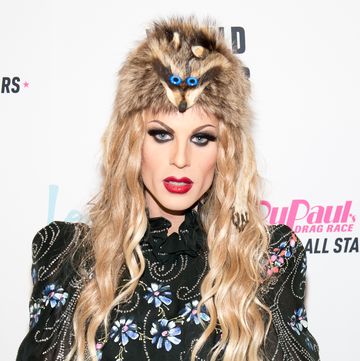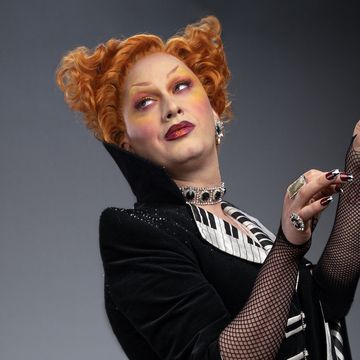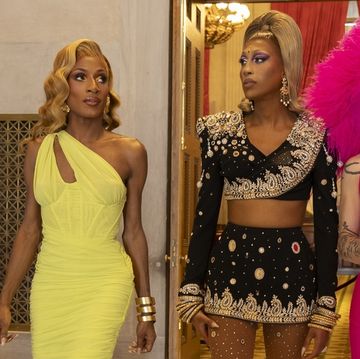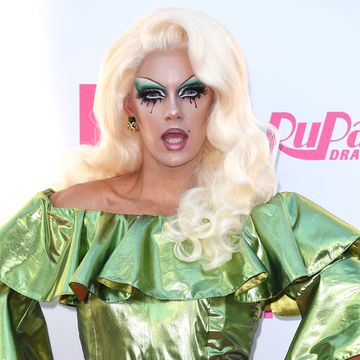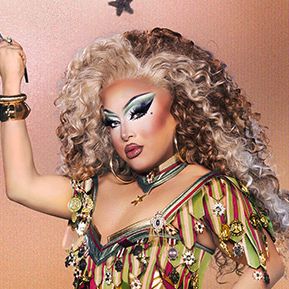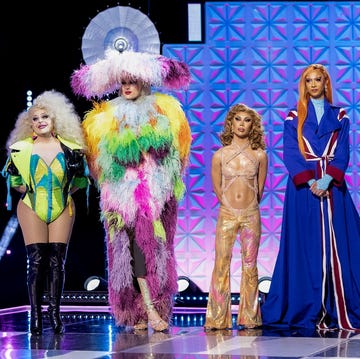Rainbow Crew is an ongoing interview series that celebrates the best LGBTQ+ representation on screen. Each instalment showcases talent working on both sides of the camera, including queer creatives and allies to the community.
Next up, we're speaking to We're Here star Eureka O'Hara.
In the final episode of All Stars season six, Eureka O'Hara shared a moving speech about all the ways drag has helped them find a place in the world, one where they truly thrive as their authentic self.
"I just remember crying, writing it," Eureka tells us. "Because it just felt so freeing, saying it out loud... My whole life, I’ve always been super-large, super-flamboyant, loud, too much something. There was always something wrong with me in a social setting, so I never felt like I fit in. But with drag, I do."
Eureka knows what it's like to truly struggle, but crucially, they also know firsthand the power of facing and overcoming these struggles head on. "I have created success, being authentically myself," says Eureka, and now they're in a wonderful position to help others who are struggling too in We're Here, the beloved HBO docuseries which is back this winter for a second season.
We caught up with Eureka to discuss We're Here, self-discovery, and the healing power of drag. Along the way, we also chatted about their recent role on American Horror Story and of course, what it's like to get chased by Evan Peters.
You help so many wonderful people find themselves on the show, but does the weight of their struggles ever impact you personally?
Yeah, it's a great question, because I'm super-empathic, and I do take on a lot of the energies from the people around me. For sure, it definitely impacts me sometimes. But luckily, I have always been that person that's taken on other people's energy, and been that supportive person. So I've been self-taught-slash-conditioned to really be able to handle that.
I take breaks. I take moments to centre myself, and breathe, and meditate. One thing I like to do is… I’ll close my eyes, and I envision all the people that I came in contact with. I feel their attachment, and I envision it – like, strings attached to me. I'll take my hands, and I'll go down, and I cut the strings. I push it away, and I give them their energy back.
And I hold them in my heart still. But I give them their energy back, because that's where it belongs, right? And it seems to help me.
We're really glad that works!
Me too! [laughs] Can you imagine?
On the flip side of that, how does working on We're Here help you grow as a person?
I've grown patience and understanding for myself by helping these people understand, and be patient with themselves. It helps me look inward a lot, too, at these moments that I've been through.
I get to see people’s self-discovery in the show, which reminds me of where I've been, and what I've been through. It just reminds me: "You know what? You’re not so bad. You've been through a lot, and you came into a really comfortable place. And I'm lucky to be further along than some of the people that I’ve worked with."
So it reminds me, too, that you're in a good place, and you're lucky enough to be in a good place. So now you can help others get to that place too. So it is reassuring, I guess.
There's a priest you work with in episode five whose message of self-acceptance really seemed to impact you. Can you talk me through what that experience meant to you?
Pastor Craig really touched my heart because I grew up Southern Baptist. We went to church every chance we got.
It was amazing to get to work with someone that worked in the church like that, because I dealt with a lot of discrimination and negativity in my church growing up, especially when I came out. So it's real. And a lot of times, queer people that live in religious areas, that's what holds us back from coming out the most. It’s religion, and the idea of damnation. That’s the scariest part.
So to have someone in the church say, "My God's a loving God, and would never give you that." You know, a stipulation or regulation on your life or soul, is really powerful.
And I hope that every queer person in Evansville, Indiana and in a six-mile radius start going to that church, you know?
The Pastor was one of many subjects on the show who happen to be straight. Given that the show is so intrinsically queer, do you feel like you need to explain more to a subject who isn't queer?
Oh, for sure. When we worked with the straight kids, there was definitely a lot of explanations, like: "What is 'fish'? What is 'fierce'? What is 'sickening'? You know, the terminology.
But then also, with Pastor Craig specifically, it was just reminding him that it’s not a joke. I think that a lot of heteronormative culture looks at drag like it's all fun and games, and it’s all funny. The one thing that We're Here does is it shows the heart of drag. It shows the therapeutic elements. It shows the importance of confidence-building and relationship-building and a chosen family.
So those are things that we get the privilege of teaching some of these heteronormative people that we work with, because there were a lot of times where Pastor Craig would just kind of laugh it off: "Oh, this is going to be hilarious. Oh, this is going to be funny." We had to take him a step back, and be like, "Well, this might be funny to you, but to a lot of people, this is very serious."
He immediately was understanding, and took a note to take a step back, and watch, and pay attention. And ended up being really impacted by it too, himself. He was also a fierce queen, honey. She gave it to them. She was ready.
She was! So I also wanted to ask about your recent role on American Horror Story. I really enjoyed Crystal Decanter! How did this role come about?
I auditioned for it, but, you know, Ryan Murphy is very private. They're very discreet over there. That’s what I was told when I went in and did the part and was accepted. It was, "We’re very discreet. We want to keep it hush-hush until the release." They really like to surprise and shock.
So I did my job and my due diligence, honey, and I didn't tell anyone. It was so crazy because even my closest friends were like, "Bitch, you didn’t tell me you were in American Horror Story!"
It was kind of fun, though, because everyone got shocked by the episode. It was a really fun experience. I love acting. So it was nice to have another foot in the water of real acting, darling. I worked with Evan Peters and Frances Conroy and Axelle [Carolyn], the director – just some incredible people I got to work with. It was amazing.
What was it like to film that scene at the end where Evan Peters and Frances Conroy attack you?
Hilarious. It was so much fun because it was my house they had decorated. I was having all the kids over at my house for a viewing party, basically. And it was really interesting because the shelves were decorated with photos of me and my drag family, and these awards of Drag Queen of the Year. It was really cute.
And it was fun, obviously, getting chased by Evan Peters. It takes forever to film. That’s the thing about TV and film. You've got to film it from every angle imaginable. So it took a long time. But we did it, and it was so fun. Evan was incredible. Frances was such a class act to work with. It was really enjoyable. I was the co-star of that episode, so we were all riding in the vehicles together, and kiki-ing. They’re really just down-to-earth people to work with.
And finally, what do you hope viewers take away from We're Here season two?
I think I would want people just to be educated on something that they didn't know about already, because there’s so much that I've learned, just by hearing these stories, and hearing different people’s perceptions – even if it’s something that I already thought I knew about, you learn so much when communicating with others.
I read somewhere, true intelligence isn’t marked by your interactions with a textbook. It's actually built through conversation and communication. And I think that’s something that this show is able to give people when it comes to queer culture.
It's a fun show. It's emotional. But it's also educational. It's something everyone should be watching, especially in the world that we're living in now, where we're trying to progress.
I think that we're a country of rebirth right now… well, really a world of rebirth, after this pandemic. I think it’s time for us all to of pay attention, and learn about other people. And this is a good way to learn about some of the queer facets that people don’t know about.
We're Here season 2 airs weekly in the US every Monday on HBO. A UK air date is yet to be confirmed, but fans can expect new episodes to arrive on Sky some time this winter.
After teaching in England and South Korea, David turned to writing in Germany, where he covered everything from superhero movies to the Berlin Film Festival.
In 2019, David moved to London to join Digital Spy, where he could indulge his love of comics, horror and LGBTQ+ storytelling as Deputy TV Editor, and later, as Acting TV Editor.
David has spoken on numerous LGBTQ+ panels to discuss queer representation and in 2020, he created the Rainbow Crew interview series, which celebrates LGBTQ+ talent on both sides of the camera via video content and longform reads.
Beyond that, David has interviewed all your faves, including Henry Cavill, Pedro Pascal, Olivia Colman, Patrick Stewart, Ncuti Gatwa, Jamie Dornan, Regina King, and more — not to mention countless Drag Race legends.
As a freelance entertainment journalist, David has bylines across a range of publications including Empire Online, Radio Times, INTO, Highsnobiety, Den of Geek, The Digital Fix and Sight & Sound.





